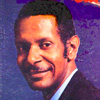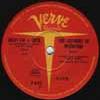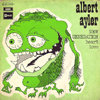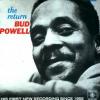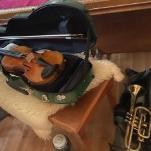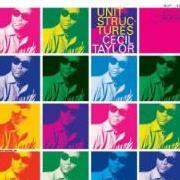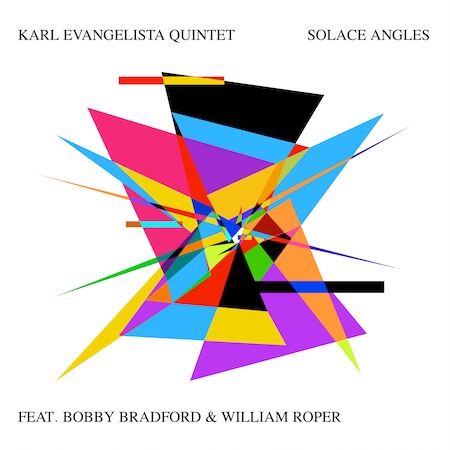-
Posts
2,567 -
Joined
-
Last visited
-
Donations
0.00 USD
Recent Profile Visitors
7,090 profile views
ep1str0phy's Achievements
Contributor (5/14)
-
Rare
-
Rare
-
Rare
-
Rare
-
Rare
Recent Badges
-

Solace Angles, feat. Bobby Bradford and William Roper
ep1str0phy replied to ep1str0phy's topic in New Releases
Thanks for your support, all! See you there, Steve! That gig is going to be nuts - Andrew and Bobby haven't played together in a long time, and the fires in LA prompted us to put something together. I'm really excited about the music. -

Solace Angles, feat. Bobby Bradford and William Roper
ep1str0phy replied to ep1str0phy's topic in New Releases
Hey, all - just in case you missed this one, it's out today- Available on Bandcamp: https://karlevangelista.bandcamp.com/album/solace-angles And from Asian Improv Records: https://www.asianimprovrecords.com/product-page/air122-d All the best to you all, K/ep1 -
Hello, all - I figure a few of you may be interested in this brand new album, releasing April 15 on the venerable Asian Improv Records. The release in question is called Solace Angles, featuring the mighty cast of Bobby Bradford, William Roper, and my Grex mates Rei Scampavia and Robert Lopez. Solace Angles is a tribute to Los Angeles - a place I love dearly, and that has needed dear love as of late. Recorded in 2023, this recording is the culmination of a longstanding ambition of mine to record an intergenerational document of West Coast free improvisation. It touches on elements of Bobby's collaborations with the great John Carter, with shades of the seminal trio Purple Gums and the daring, open-ended work of Nels Cline and many others. In the interim between recording and release, Bobby and Roper were both impacted by the 2025 greater Los Angeles wildfires. (You may have caught wind of our fundraisers.) It was never my intention for this recording to engage with that tragic event. Rather, I'd like to think of Solace Angles as a celebration of West Coast free improvisation at its most resilient. Pre-orders and a representative preview track are available now at https://karlevangelista.bandcamp.com Thanks to all! K
-
Hi, Adam - sorry I missed this! Quite anxious about the coming week, but I'm hoping that the heightened state of preparedness means that the worst stretch of danger is over. Let's absolutely connect on FB (if you need help finding me, just DM me). There is a story to be told about everything that has transpired in the past few weeks, but I take some heart in knowing that the music community has done a tremendous job of taking care of its own. Bobby and Roper will land on their feet - I think it's just a matter of triage right now, on top of the incalculable personal loss.
-
I meant to post this in Bobby and Roper's thread, but I might as well add here- This is a master list of active resources and gofundmes related to the fires. If anyone wishes to help musicians who have been affected, this is a good resource: Support The Music Community - Fire Loss Funding
-
Adam, that was my post! I'm so glad it's making the rounds. I hope you and your home stay safe. In the past few days, I've had countless conversations about the state of things in LA. There are demographic, cultural, and optical factors at play that are just depressing. But the outpouring of support in the midst of this crisis has been truly astounding.
-
On top of the personal loss, the destruction of all that vinyl is devastating. On a brighter note, the sheer volume of people who have reached out with offers of aid is truly humbling. Music people take care of music people. It's a truly beautiful thing.
-
Thanks to all of you for your thoughts, kind words, and consideration! Lest it go unsaid, I'm happy for others to post any and all fundraisers for other musicians. It's an extremely chaotic situation. To those not attuned to the situation, Altadena was a musicians' haven of sorts. According to my understanding, about half of the area was burned down. The personal loss is immense, and we also lost a tremendous amount of history. Bobby's home alone was a storehouse for a lot of things that the jazz and creative music worlds will sorely miss. Any and all help is appreciated. As far as I can tell, basically all of the fundraisers have been run by friends and other musicians. Only hands can wash hands, etc. If you're in or near LA right now, please stay safe. And much love to everyone.
-
Hello, all- (Apologies in advance if this thread seems inappropriate for the artists subforum) Long story short, Bobby Bradford and William Roper - two LA creative musicians whom you may be familiar with - recently lost their homes in the 2025 LA wildfires. About half of Altadena was destroyed, and countless musicians were affected. Bobby actually lost his horns, escaping only with the clothes on his back. We have started two (official) fundraisers to help the aforementioned gentlemen get back on their feet. Contributions are of course extremely welcome, but any help spreading the word, etc., would be hugely appreciated. Bobby: https://www.gofundme.com/f/help-bobby-bradford-rebuild-after-wildfire Roper: https://www.gofundme.com/f/help-william-roper-rebuild-after-wildfire All the best, K/ep1str0phy
-
I was just about to post this- I enjoy this recording. W/regard to your point - although I think that Barron acquits himself well, it also sounds like there's a bit of a remove there. Barron very much strikes me as a post-bop cat who was fluid enough to hang with open structures. But Cecil's music is rooted in motivic interplay (e.g., the unit structures thing), which almost necessitated the invention of a new idiom on multiple instruments. It's the fine line that separates Jimmy Lyons from Ken McIntyre or, speaking in broader terms, Andrew Cyrille from, say, J.C. Moses. Speaking in pure hypotheticals, this is the kind of free idiom that I can see McLean getting close to. Late Coltrane had a constant (if not static) rhythmic engine, which is at odds with the momentum-oriented playing that McLean excelled at. I can imagine McLean slotting into the Lyons role well, especially if supported by a drummer as literate as Cyrille.
-
Hello, all- I figure that this one may be of interest - our mutual friend Alex Hawkins is going to be visiting the Bay Area next week. We'll be playing some of my compositions + free improvisations, and the bands are fantastic. In the off chance that some O board longtimers are out west, it might be worth the visit. Hits: • Monday, October 14, 2pm, Palo Alto, CA // at Earthwise (600 EAST MEADOW DRIVE Palo Alto, CA 94304) // w/Jenny Scheinman and co. // Reservations HERE • Tuesday, October 15, 7pm, San Francisco CA // Jazz at the Make-Out: Alexander Hawkins (UK), Low Bleeds (3225 22nd Street, SF, CA) // No Cover/Donations Accepted • Thursday, October 17, 8pm, Berkeley, CA // Alexander Hawkins Quartet, Bruce Ackley Solo at Tom's Place (3111 Deakin Street, Berkeley, CA) // Donations Accepted The band features Lisa Mezacappa, Jordan Glenn (Fred Frith Trio; 10/14 and 10/15 only), and Donald Robinson (10/17). We'll be tackling some a handful of old standbys, including music from our recent record with Tatsu Aoki and Michael Zerang: https://sluchaj.bandcamp.com/album/what-else-is-there
-
To be fair, I think that Jackie's experiments with free tempo music were earnest and purposeful. I just think that there was disconnect between how he understood things like harmony and forward motion and how the more naturalistic free players dealt with those concepts. My sense is that there were plenty of players who understood free music on some level but did not play it - e.g., openminded people like Gerald Wilson. Then there were players who could play in more open idioms, but whose approaches were somewhat incompatible with pure free playing - e.g., McLean, Dennis Charles, Bill Barron, etc. Then there were guys who were capable free players but probably didn't want anything to do with the music in a longterm sense - e.g., Rahsaan, Art Taylor, and so on.
-
Whoa - my initial post was from 17 years ago. Mercifully, all of this stuff is now readily available. The landscape for digital media completely changed in the interim between then and now.
-
A (possibly) bizarre post, but most certainly of interest - this is essentially a reunion show for the One Step Beyond band. Of particular note is that Jackie isn't even on this recording. According to the YouTube comments, he was in a car accident. James Spaulding subs. Woody Shaw and Ron Carter also feature, with Moncur, Hutcherson, and Williams returning. The lack of McLean robs this music of some necessary surrealism, but Spaulding acquits himself well. The heads are a little shambolic, and "Frankenstein" in particular sounds like it was performed with only minimal rehearsal. Overall, however, the music is excellent. Tony and Ron are playing in full-on maximalist/VSOP mode, but it works here. Moncur sounds like his old self, Hutcherson is appropriately lyrical, and Shaw offers a bit of vintage fire. I was at an open air gig last Saturday where the bandleader had us play "Ghost Town" off of lead sheets. It was not great. What I came to realize - and this was confirmed by a quick spin of the record later that day - is that the One Step Beyond music is largely very "in." It's all modal structures with few hairy edges. The abstraction is derived from the band's interplay and the energy of the performances. I guess I had misremembered things. When McLean did veer into actual free jazz later in his Blue Note tenure, the music lost some of its identity. To me, this both (a) reconfirms the primacy of that stretch from Let Freedom Ring to '65 or so, which is truly unique in character, and (b) validates the notion that the free jazz music of the '60s wasn't just something you could slump into, regardless of good intentions.
-
Ted is a fantastic bandleader/keyboardist, too, for anyone who doesn't know. Some of the most insightful Dolphy stories I've heard come from Sunny Murray. (I head the stories secondhand, relayed to me by the great Bay Area saxophonist David Boyce.) I can only paraphrase what I was told, but apparently Dolphy was occasionally in danger of physical attack. The hulking Murray, who was a Golden Gloves winner, sometimes had to serve as his bodyguard. Murray also characterized Dolphy's living conditions as very spare - a bed and some protein. IIRC George Russell said more or less the same thing.
_forumlogo.png.a607ef20a6e0c299ab2aa6443aa1f32e.png)

